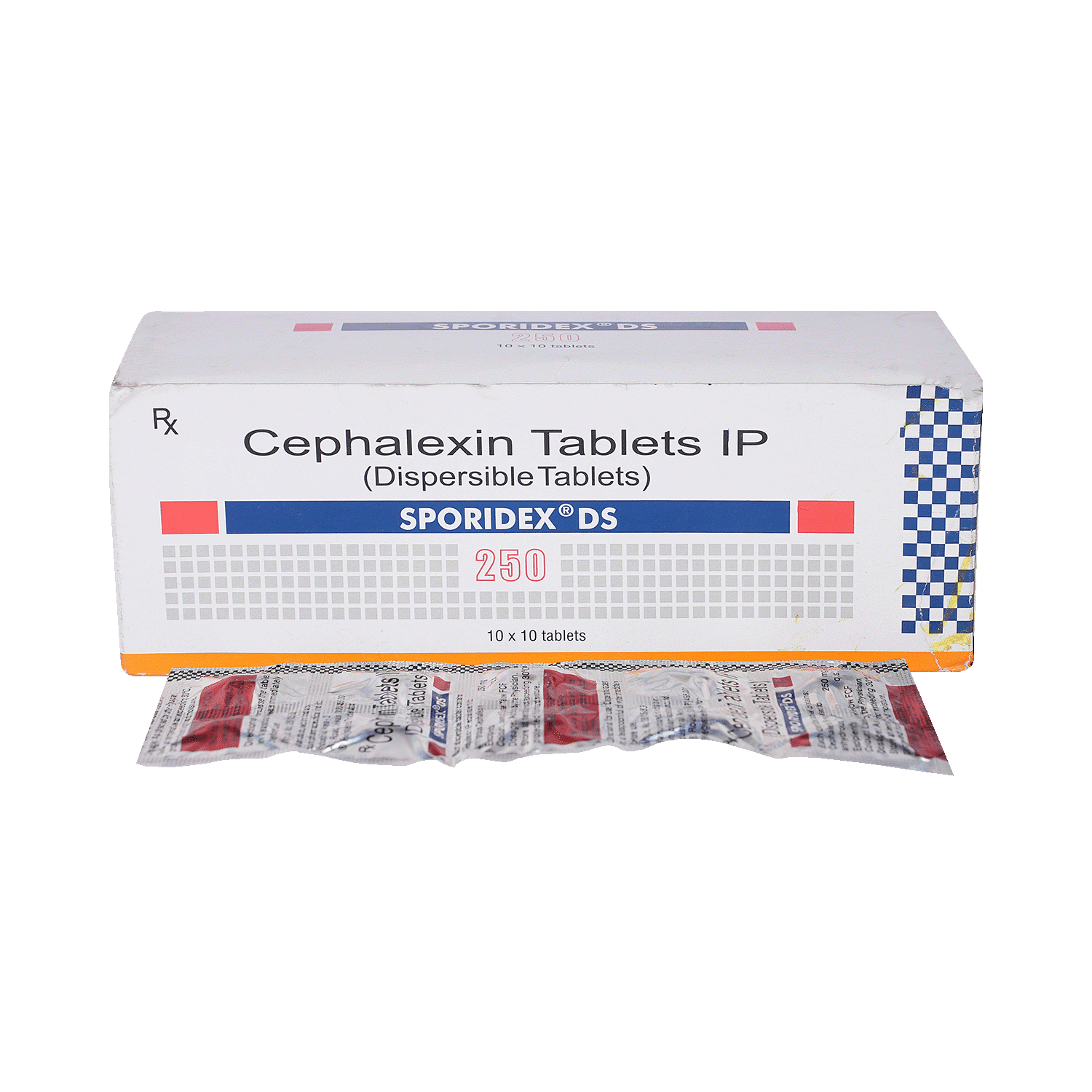
Q Cef 250mg Tablet
Manufacturer
Que Pharma Pvt Ltd
Salt Composition
Cefalexin (250mg)
Key Information
Short Description
Q Cef 250mg Tablet is an antibiotic medicine used to treat bacterial infections in your body.
Dosage Form
Tablet
Introduction
Q Cef 250mg Tablet may be taken with or without food. You should take it regularly at evenly spaced intervals as per the schedule prescribed by your doctor. Taking it at the same time every day will help you to remember to take it. The dose will depend on what you are being treated for but you should always complete a full course of this antibiotic as prescribed by your doctor. Do not stop taking it until you have finished even when you feel better. If you stop taking it early some bacteria may survive and the infection may come back. It will not work for viral infections such as flu or the common cold. Using any antibiotic when you do not need it can make it less effective for future infections.
Directions for Use
Take this medicine in the dose and duration as advised by your doctor. Swallow it as a whole. Do not chew, crush or break it. Q Cef 250mg Tablet may be taken with or without food but it is better to take it at a fixed time.
Safety Information
Side Effects
rash stomach pain nausea vomiting indigestion diarrhea
Alcohol Warning
Consuming alcohol with Q Cef 250mg Tablet does not cause any harmful side effects.
Breastfeeding Warning
Q Cef 250mg Tablet is safe to use during breastfeeding. Human studies suggest that the drug does not pass into the breastmilk in a significant amount and is not harmful to the baby. Avoid prolonged use of Q Cef 250mg Tablet, since it may have possible effects such as rash and diarrhea.
Pregnancy Warning
Q Cef 250mg Tablet is generally considered safe to use during pregnancy. Animal studies have shown low or no adverse effects to the developing baby; however, there are limited human studies.
How it works
Q Cef 250mg Tablet is an antibiotic. It kills bacteria by preventing them from forming the bacterial protective covering (cell wall) which is needed for them to survive.
Quick Tips
Your doctor has prescribed Q Cef 250mg Tablet to cure your infection and improve your symptoms. Do not skip any doses and finish the full course of treatment even if you feel better. Stopping it early may make the infection to come back and harder to treat. Discontinue Q Cef 250mg Tablet and inform your doctor immediately if you get a rash itchy skin swelling of face and mouth or have difficulty in breathing. Diarrhea may occur as a side effect but should stop when your course is complete. Inform your doctor if it doesn't stop or if you find blood in your stools.
Related Medicines

Anacef 250mg Tablet

Septicot 250 Tablet

Tynicef 250mg Tablet

Cefly 250mg Tablet

Solexin 250mg Kid Forte Tablet

V Flex 250mg Tablet

Naslex 250mg Tablet

Sporidex DS 250mg Tablet

Alexin Kid 250mg Tablet

Solin 250mg Tablet
Frequently asked questions
Is cephalexin safe?
Cephalexin is generally considered safe when taken at prescribed doses for the prescribed duration as directed by your doctor.
Can the use of Q Cef 250mg Tablet cause diarrhea?
Yes, antibiotic therapy, including Q Cef 250mg Tablet, can cause diarrhea. It disrupts the normal balance of bacteria in the gut and may lead to digestive discomfort like diarrhea. If you experience persistent diarrhea, contact your doctor.
What if Q Cef 250mg Tablet doesn't work?
If Q Cef 250mg Tablet does not seem to be effective after trying it for the prescribed time, discuss this with your healthcare provider. They may adjust your dosage or switch you to another antibiotic that might be more suitable.
What if I don't get better after using Q Cef 250mg Tablet?
If you do not experience improvement after completing the full course of treatment, notify your doctor. It is crucial to inform them if your symptoms are worsening while taking this medication.
Can I stop taking Q Cef 250mg Tablet when my symptoms are relieved?
No, it's crucial to complete the full course of treatment for cephalexin as directed by your doctor. Stopping the medication prematurely may allow the infection to remain and potentially develop into a more severe situation.


